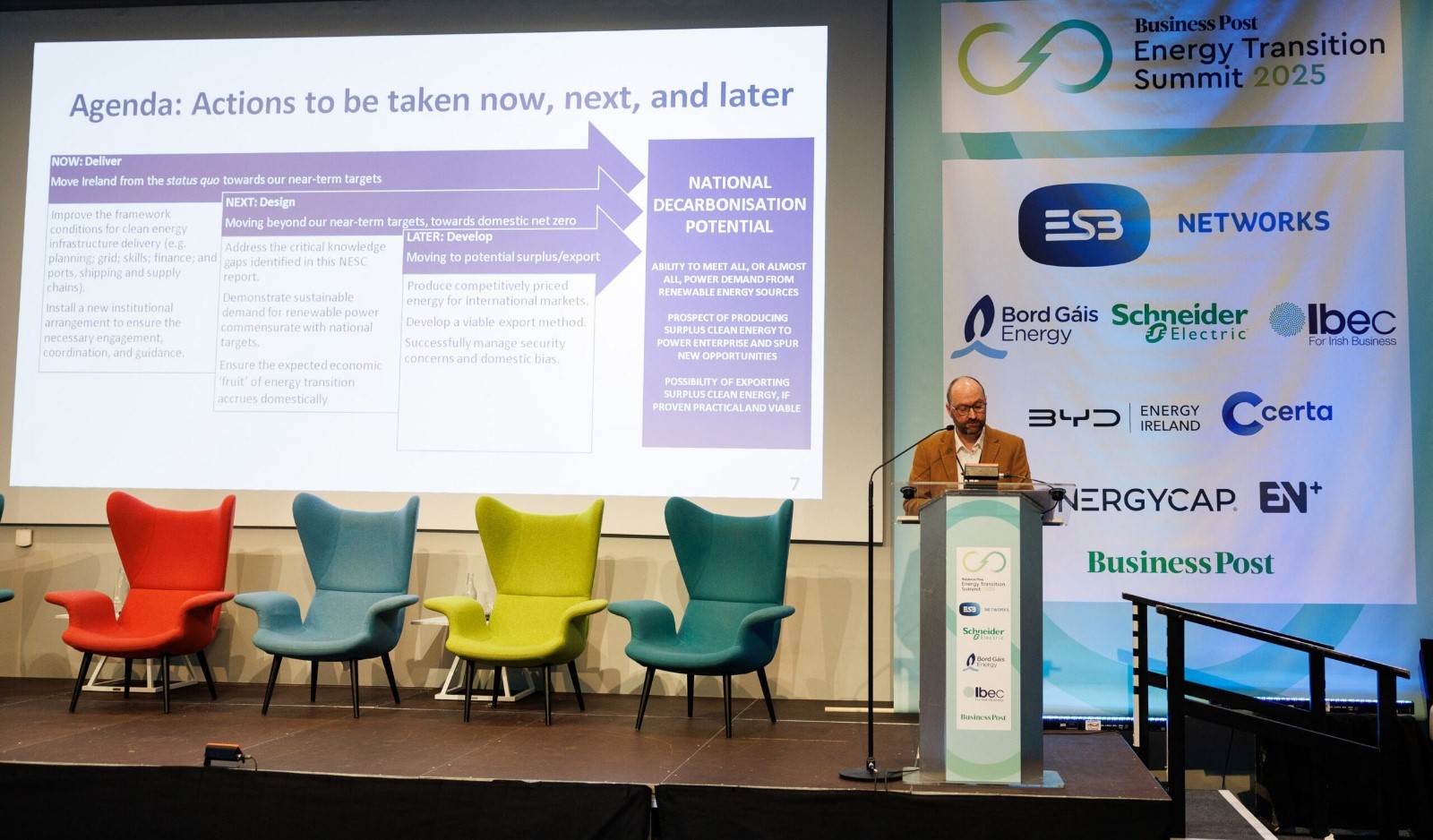You are here: Home > News & Events > “Ireland needs an agreed decarbonisation pathway aligned with national goals”: NESC at Energy Transition Summit 2025
“Ireland needs an agreed decarbonisation pathway aligned with national goals”: NESC at Energy Transition Summit 2025
- 20 October 2025
- Topics: Energy and renewables
- Types: Events

On Wednesday 15th October, Dr Cathal FitzGerald (Senior Analyst at NESC) told the National Energy Summit 2025 that the National Economic and Social Council has identified key risks to energy transition policy and has set out an agenda to respond to them, categorised into actions for now, next, and later.
The summit in Croke Park, Dublin brought together 300 experts from industrial, policy, and NGO sectors.
“A core element of Ireland’s transition is the plan for the power sector. The national narrative is that we can achieve a clean, reliable, affordable power system and one which supports our economy. This was the subject of NESC’s report, Ireland’s Future Power System and Economic Resilience,” Dr FitzGerald told the event. “But there are significant policy and narrative risks. Much of Ireland’s transition policy is headed ‘into fog’ and may be off course. Further, because the cost of electricity is likely to be higher, not lower, and because we are likely to miss our near-term targets, there is a real threat to the narrative,” he stated.
“NESC has set out detailed actions to address these risks,” he said. “Crucially, Ireland needs a clearer model of our planned transition. A dashed line from where we are, to where we want or need to be, is not a pathway. A meaningful pathway must be traversable and feasible. We need an agreed decarbonisation pathway aligned with national environmental, social, and economic objectives. Otherwise, we can expect more delays and increasing tensions.
“Complexity and uncertainty around the transition is expected, but this must not lead to paralysis or delay. The Council believes Ireland must act now to deliver where we have visibility and move Ireland from the status quo toward our near-term targets. We must act next to design the way forward where there is fog, moving beyond near-term targets toward domestic net zero. And we must act later to develop a path where there is currently no visibility, moving closer to realising any export potential.
“This is more than a modelling challenge. The transition must make sense at ground level – socially, economically, and politically – as well as on a graph. Ultimately, Ireland needs a story of energy transition that isn’t told looking 30,000 feet away, looking to the horizon. We need meaningful action now along an agreed pathway to deliver Ireland’s decarbonisation potential,” he concluded.


